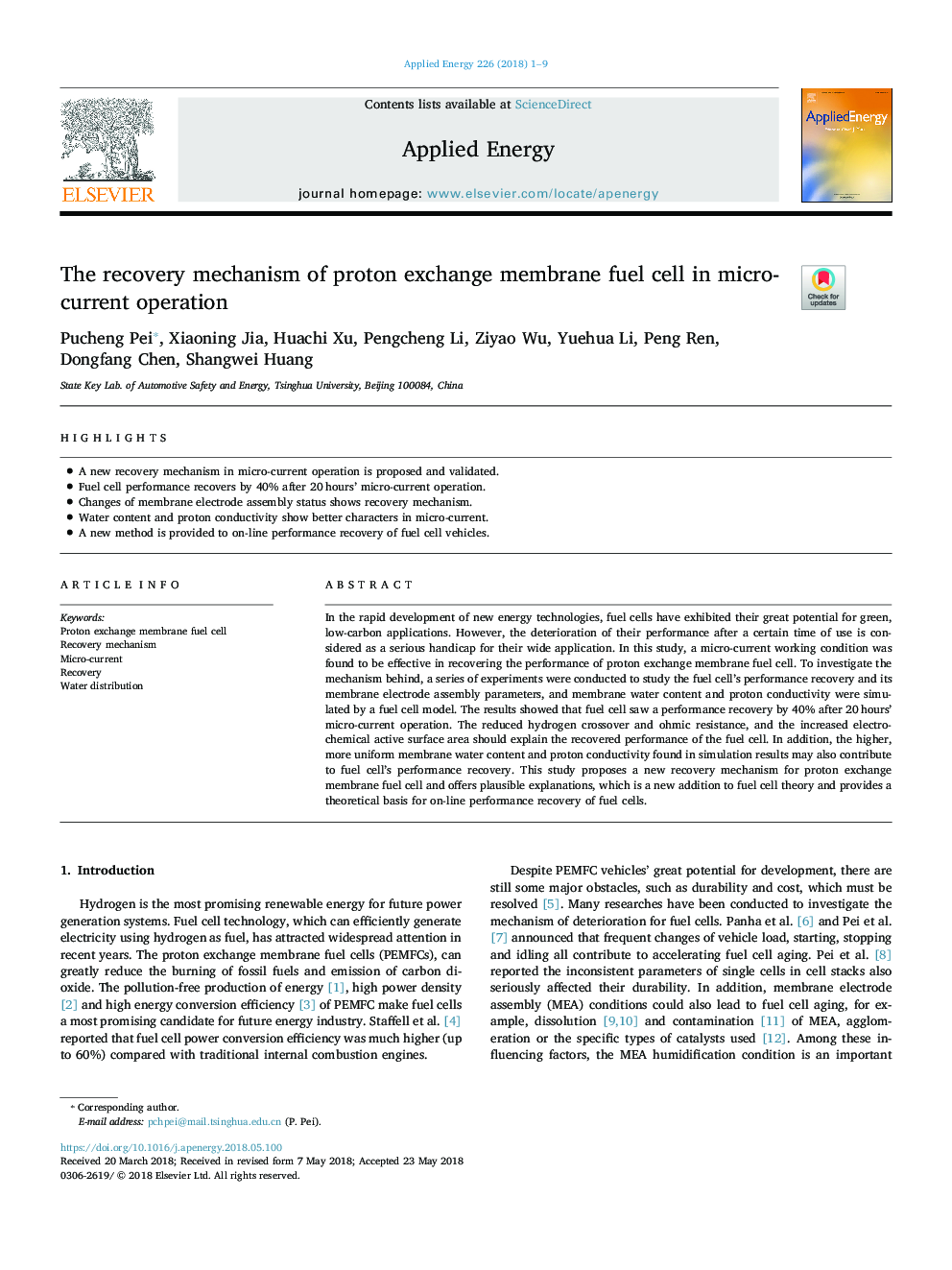| Article ID | Journal | Published Year | Pages | File Type |
|---|---|---|---|---|
| 6679709 | Applied Energy | 2018 | 9 Pages |
Abstract
In the rapid development of new energy technologies, fuel cells have exhibited their great potential for green, low-carbon applications. However, the deterioration of their performance after a certain time of use is considered as a serious handicap for their wide application. In this study, a micro-current working condition was found to be effective in recovering the performance of proton exchange membrane fuel cell. To investigate the mechanism behind, a series of experiments were conducted to study the fuel cell's performance recovery and its membrane electrode assembly parameters, and membrane water content and proton conductivity were simulated by a fuel cell model. The results showed that fuel cell saw a performance recovery by 40% after 20â¯hours' micro-current operation. The reduced hydrogen crossover and ohmic resistance, and the increased electrochemical active surface area should explain the recovered performance of the fuel cell. In addition, the higher, more uniform membrane water content and proton conductivity found in simulation results may also contribute to fuel cell's performance recovery. This study proposes a new recovery mechanism for proton exchange membrane fuel cell and offers plausible explanations, which is a new addition to fuel cell theory and provides a theoretical basis for on-line performance recovery of fuel cells.
Related Topics
Physical Sciences and Engineering
Energy
Energy Engineering and Power Technology
Authors
Pucheng Pei, Xiaoning Jia, Huachi Xu, Pengcheng Li, Ziyao Wu, Yuehua Li, Peng Ren, Dongfang Chen, Shangwei Huang,
